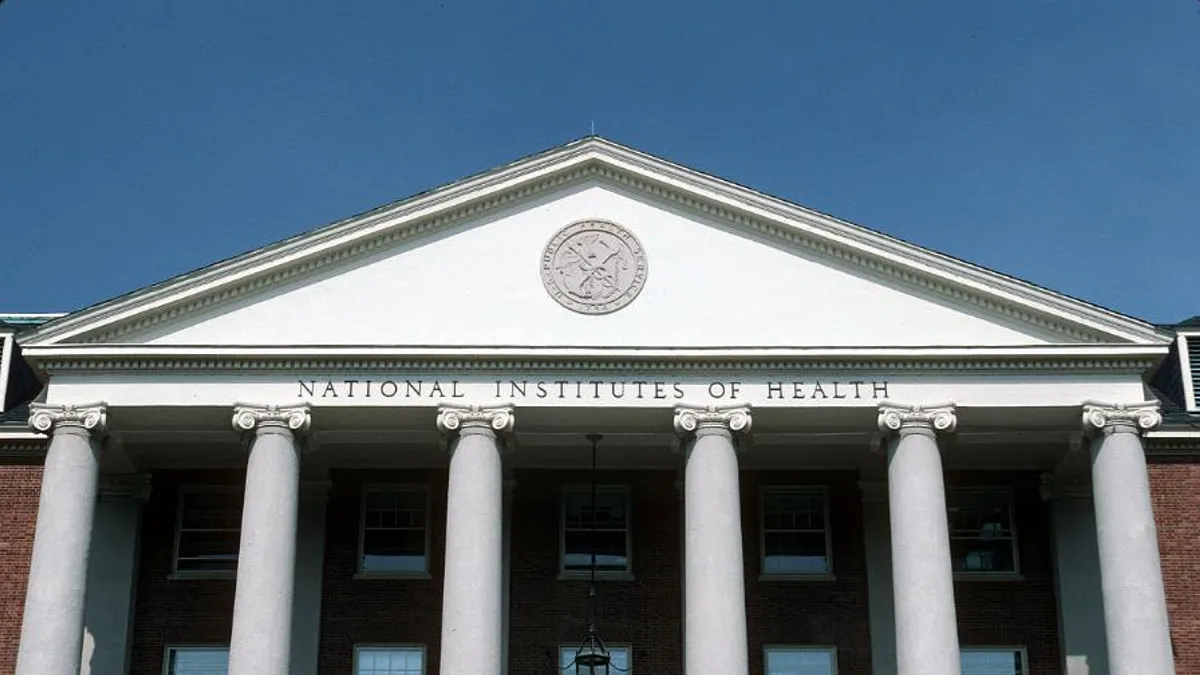Dive Brief:
-
NIH has awarded contracts to seven organizations working on digital health responses to the COVID-19 pandemic by leveraging data from smartphones, wearable devices, as well as diagnostic and serology test results.
-
The contracts, collectively worth up to $22.8 million, cover efforts to analyze the patient-consented data using artificial intelligence, machine learning and other computational methods to detect and monitor suspected coronavirus cases and identify their contacts.
-
IBM and Evidation Health are among the companies to receive money, which NIH will hand out in two tranches over the next 12 months.
Dive Insight:
Digital health companies began working on technological solutions to the pandemic early in the crisis. Fitbit set out to show if its wearables could detect infections early, emerging with preliminary evidence to support its hypothesis last month. Apple and Google and teamed up to work on contract tracing. And the U.S. government threw its weight behind some of the projects.
Now, NIH has disclosed a new batch of contracts for digital health responses to COVID-19. The seven contracts are representative of the range of ways researchers are trying to use technology to address different aspects of the management of the coronavirus outbreak.
Evidation has received $240,000 to develop a platform for analyzing wearable data, patient reports and other sources of information to find cases of COVID-19. NIH wants the platform to differentiate between infections with SARS-CoV-2 and influenza. The contract, the value of which could rise to $800,000, was signed months after Evidation said it had begun working with Biomedical Advanced Research and Development Authority on a similar project.
IBM is among the other companies to receive funding. NIH has tasked the tech giant with creating “an integrated solution that supports sophisticated contact tracing and verifiable health status reporting, yielding an array of key research data that simultaneously empowers users and facilitates research.”
Other companies are working to improve the monitoring of COVID-19 patients. PhysIQ's artificial intelligence-based data analytics and cloud computing platform will be used with FDA-cleared wearables to identify changes in the health status of people infected with the coronavirus. Shee Atiká Enterprises is using a smartphone app integrated with a Bluetooth-enabled thermometer and pulse oximeter to monitor the temperature and blood oxygen levels of patients in low-resource settings.
Some of the other contracts cover similar ground to the Evidation and IBM projects. The University of California, San Francisco is developing a GPS-based contract-tracing tool. Vibrent Health is working on a way to identify COVID-19, differentiate it from flu and trace the contacts of those infected using Wi-Fi technology and machine learning algorithms.
The other contract covers a distinct task from the other projects and looks forward to a time when the U.S. differentiates people based on their immune status. NIH has given iCrypto $274,880 to work on “a smartphone-based platform to provide irrefutable proof of testing, serologic, and vaccination status for individuals.” The value of the contract could rise to $1.8 million if the agency exercises its options.
NIH disclosed the seven contracts alongside an eighth distinct but related agreement with CareEvolution. The agency has contracted CareEvolution to develop a technology that indicates whether an individual is ready to return to work based on their self-reported symptoms, wearable output, electronic health record and claims data.










